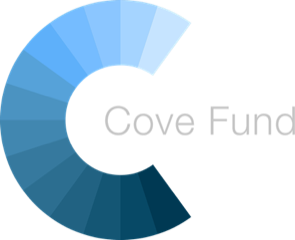What Does a Venture Capital Fund Manager Really Do?
Venture capital fund managers often wear the title of “investor,” but the real job is far more complex and hands-on. It’s not just about writing checks — it’s about raising capital, finding the right companies, guiding them through inflection points, and managing a fund that performs for its limited partners. At Cove Fund, we know the reality of the role is equal parts operator, advisor, and capital allocator.
So what does a venture capital fund manager really do all day? Let’s break it down.
1. Raising Capital for the Fund
Before a single startup pitch deck ever hits the desk, a fund manager’s job begins with raising capital. This means building relationships with limited partners (LPs) — typically individuals, family offices, or institutions — and convincing them of the fund’s investment thesis, track record, and strategy.
Raising a fund isn’t a one-and-done effort. It requires clear communication, financial rigor, and trust. LPs need to believe not only in the sectors you’re targeting, but also in your ability to pick winners, support them, and deliver a return on capital over the fund’s lifecycle.
2. Sourcing High-Quality Deal Flow
With funding secured, the next priority is generating strong deal flow. That doesn’t mean just seeing a lot of companies — it means seeing the right ones.
Fund managers spend significant time networking with founders, attending demo days, collaborating with other investors, and staying plugged into the startup ecosystem. At Cove Fund, we benefit from our Southern California network, which includes universities, accelerators, industry partners, and engaged LPs who often help surface compelling early-stage opportunities.
A fund is only as strong as its pipeline. Great returns start with seeing high-quality companies early.
3. Conducting Diligence and Making Investment Decisions
Once a promising startup emerges, the diligence process begins. This includes:
Evaluating the founding team’s experience and chemistry
Understanding the customer pain point and product-market fit
Verifying the size and accessibility of the target market
Stress-testing the financial model and assumptions
Assessing potential competition and exit scenarios
This stage is rigorous and often collaborative. At Cove, we tap into our Limited Partner network — many of whom are successful operators — to pressure test the opportunity. If everything checks out, we move forward with negotiating terms and finalizing the investment.
4. Supporting Portfolio Companies Post-Investment
Once an investment is made, the job is far from over. In many ways, this is where the work really starts.
Fund managers are often called upon for strategic advice, hiring support, customer and investor introductions, and help refining the company’s story for the next round. We view this as “getting in the trenches” with our founders.
At Cove, we’ve sat in on hiring interviews, revised fundraising decks, made key customer intros, and helped founders navigate tough boardroom moments. We’re active partners — not just observers.
The best fund managers help startups turn potential into performance.
5. Managing Fund Operations and LP Relationships
Behind the scenes, there’s also a business to run. Fund managers are responsible for the operational health of the fund — tracking investments, producing quarterly reports, maintaining compliance, and managing capital calls and distributions.
Crucially, they also maintain regular, transparent communication with LPs. These updates help LPs stay informed and confident in the fund’s progress, and they build the foundation for future fundraising efforts.
Running a fund is as much about stewardship as it is about investing. The numbers have to make sense, and the communication has to be strong.
A Day in the Life
There’s no such thing as a typical day — but most fund managers juggle a blend of the following:
Morning: Reviewing pitch decks, replying to founders, prepping for internal meetings
Midday: Calls with startups in diligence, check-ins with portfolio companies, deal reviews
Afternoon: Strategic planning with the team, LP communications, or fund admin work
Evening: Industry events, founder dinners, networking with other VCs
Some days you’re an investor. Other days you’re a coach, a recruiter, a board member, or a financial analyst. Most days, you’re all of the above.
The Bottom Line
The job of a venture capital fund manager is dynamic, demanding, and high-stakes. It begins with raising capital and continues through every phase of sourcing, investing, supporting, and ultimately exiting portfolio companies.
It’s a role that requires vision and execution — the ability to identify promising opportunities, build trusted relationships, and help steer early-stage companies through complex waters. At its core, venture capital is a people business — one that’s driven by judgment, pattern recognition, and the willingness to dig in when it counts.
At Cove Fund, we embrace that responsibility every day — as investors, as partners, and as stewards of our LPs’ capital.
About Us
Cove Fund is a seed-stage venture capital fund based at UC Irvine’s Beall Applied Innovation, a hub for Southern California entrepreneurs and investors. We invest in early-stage technology and life science companies with differentiated products that address large markets and can achieve major milestones with seed funding.
Since our inception, we have invested over $20 million and are actively deploying capital from our $24 million third fund. If you are a Southern California startup seeking funding — or an investor interested in becoming a limited partner — visit us at www.covefund.com.
